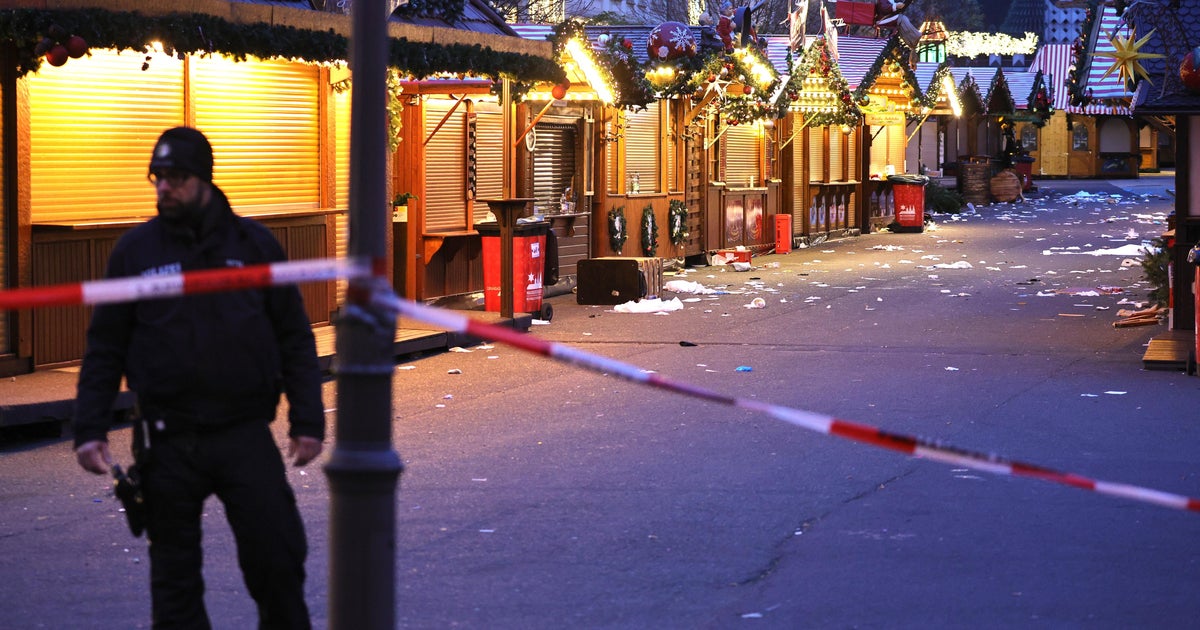Putin critic Alexei Navalny continues to recover as evidence of Novichok poisoning mounts
Berlin — Laboratories in France and Sweden have confirmed the findings of a German military lab that said there was no doubt Russian opposition leader Alexei Navalny was poisoned with a Soviet-era nerve agent.
The German government's declaration on September 2 that its specialist lab had confirmed "without a doubt" the presence of a Novichok nerve agent in Navalny, a harsh critic of President Vladimir Putin, was quickly backed by the U.S. and other European nations.
Russia, on the other hand, dismissed the accusation as anti-Russian "hysteria," and accused Germany of failing to provide evidence of a poisoning. Moscow has said the Russian hospital where Navalny was first treated found no signs of poison, and blamed his sudden collapse during a domestic flight on food poisoning or a metabolic problem.
Navalny was brought out of a medically-induced coma in a Berlin hospital a week ago. There have been conflicting reports on how quickly he's recovering since then, but on Monday the hospital released a statement saying he had been "successfully removed from mechanical ventilation" and was "able to leave his bed for short periods of time."
"Three laboratories have now, independently from each other, provided evidence of a nerve agent from the Novichok group as the cause of Mr. Navalny's poisoning," German government spokesman Steffen Seibert said in a statement released Monday.
The Swedish and French labs' results, "are now available and they confirm the German evidence," he said, adding that the German government and its European partners were "in close contact with each other for further steps."
The head of the Swedish Defence Research Agency, Asa Scott, was quoted by Swedish news agency TT as saying that his country "can confirm that we see the same results as the German laboratory, that is, that there is no doubt that it is about these substances."
In France, President Emmanuel Macron expressed his "deep concern over the criminal act" in a phone call with Putin on Monday, according to the French leader's office. Macron confirmed that French officials had also concluded Navalny was poisoned with Novichok.
Seibert also appeared on Monday to answer Moscow's complaint that the global chemical weapons watchdog agency, the Organization for the Prohibition of Chemical Weapons (OPCW), had not received data or samples from Germany pertaining to Navalny's case.
The Kremlin claimed last week that Berlin had only sent a letter to the OPCW, but Seibert said representatives from the U.N.-backed agency had come to Germany and collected samples from Navalny to conduct its own investigation into the claims that a deadly nerve agent was used.
The U.K. has charged two alleged Russian agents, in absentia, with using Novichok in the attempted 2018 assassination of former double agent Sergei Skripal. While Britain first cited its own lab results in accusing Russia of using the nerve agent, the OPCW eventually confirmed that the toxins were present in tissue samples from Skripal and others who came into contact with the substance in England.
Novichok was developed by the Russian government during the Soviet era. Like all chemical weapons, its use is banned under international law, and it is the OPCW's mandate to investigate any reported uses.
The German government repeated its demand on Monday that Russia "clarify" how Navalny could have come into contact with the deadly toxin.
Russian authorities declared on Friday that they, too, would send investigators to Berlin, but employees of the Charité hospital in the German capital have already made it clear that Russians won't be granted access to the convalescent opposition figure.
Navalny, 44, collapsed on a flight from Siberia to Moscow on August 20 and was taken to a clinic in Siberia after an emergency landing.
He was transferred to the Berlin hospital after several days, and much pressure from Navalny's own team and the team of German doctors who were at first refused permission to transfer him by Russian officials.
Last week, U.S. Secretary of State Mike Pompeo said on a radio show that there was a "substantial chance" it had been ordered by "senior Russian officials."
Earlier, he said the U.S., along with fellow G7 nations Britain, Canada, France, Germany, Italy and Japan, "strongly condemned the poisoning of Alexei Navalny with a chemical nerve agent."
"This attack contravenes the international norms prohibiting the use of such weapons. We call on Russia to bring those responsible for this abhorrent attack to justice," Pompeo said on Twitter.




